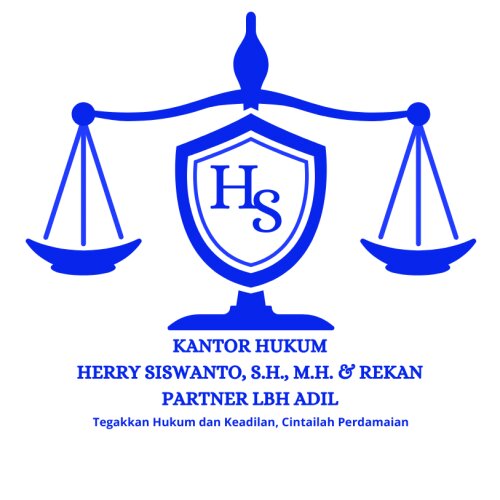Best Juvenile Law Lawyers in Jakarta
Share your needs with us, get contacted by law firms.
Free. Takes 2 min.
List of the best lawyers in Jakarta, Indonesia
About Juvenile Law in Jakarta, Indonesia
Juvenile Law in Jakarta, as part of Indonesia's broader legal framework, focuses on legal issues involving minors, typically individuals under the age of 18. The primary aim is to rehabilitate rather than punish young offenders, recognizing their potential for reform and reintegration into society. This area of law addresses not only criminal offenses committed by minors but also their rights and welfare, ensuring protection from exploitation and abuse. Key statutes include the Child Protection Law and the Juvenile Justice System Law, which outline the rights of children and the processes for handling juvenile cases.
Why You May Need a Lawyer
Individuals may require legal assistance in Juvenile Law for various reasons, including:
- Accusations of juvenile delinquency: A lawyer can help navigate the legal process, ensuring a fair trial and advocating for rehabilitative measures rather than punitive ones.
- Child protection cases: Legal assistance may be necessary for issues involving neglect, abuse, or the need for guardianship.
- School disciplinary actions that may have legal implications: Counsel can aid in understanding rights and potential legal recourse.
- Custody and family law issues affecting minors: An attorney can provide guidance on the legal aspects of custody disputes, adoption procedures, or child support matters.
Local Laws Overview
Juvenile Law in Jakarta operates under several key legislative frameworks:
- The Indonesian Child Protection Law emphasizes children's rights to protection from violence and discrimination, offering mechanisms for addressing violations.
- The Juvenile Justice System Law provides the procedures for handling minors in conflict with the law, emphasizing restorative justice and the use of diversions to avoid formal judicial processes when possible.
- The role of the Social Welfare Institutions (LKSA) in working with Judicial authorities to ensure rehabilitative and corrective measures for juveniles rather than incarceration.
- The involvement of local customary laws in the juvenile justice process, where applicable, to accommodate cultural contexts.
Frequently Asked Questions
What age is considered a juvenile in Jakarta, Indonesia?
A juvenile is typically defined as a person under the age of 18 years.
What happens if a juvenile is arrested?
The juvenile will be referred to the juvenile court system, where their case may be handled with an emphasis on rehabilitation and diversion programs.
Can a juvenile be tried as an adult?
In certain severe cases, the juvenile court can recommend a case to be tried in an adult court, but this is not common and depends on the age and nature of the offense.
What are diversion programs?
Diversion programs are alternatives to formal prosecution, focusing on counseling, education, and community service to rehabilitate rather than punish juveniles.
Are juvenile court proceedings public?
No, juvenile proceedings are generally closed to the public to protect the privacy of the minor involved.
Can minors be detained before trial?
While pre-trial detention is possible, it is generally avoided in favor of non-custodial measures unless deemed absolutely necessary for public safety.
Do minors have the right to a lawyer?
Yes, minors have the right to legal representation, and if they cannot afford a lawyer, the court may appoint one.
How does the law protect juveniles from abuse?
The Child Protection Law ensures measures are in place for reporting and addressing cases of abuse, offering support and intervention services.
What is the role of parents in juvenile cases?
Parents are usually involved in the legal process, from providing consent for legal actions to participating in rehabilitation and counseling efforts.
What is the focus of juvenile rehabilitation programs?
These programs aim to educate, counsel, and provide skill-building opportunities for juveniles to facilitate their positive reintegration into society.
Additional Resources
- Ministry of Social Affairs: Oversees social welfare programs, including those for juveniles.
- National Commission for Child Protection (Komnas Anak): Advocates for children's rights and provides resources for protection and legal assistance.
- Legal Aid Institutions (LBH): Offer free or low-cost legal services to those in need, including juvenile cases.
- Social Welfare Institutions (LKSA): Provide support and rehabilitation programs for minors in conflict with the law.
Next Steps
If you require legal assistance in Juvenile Law, consider the following steps:
- Consult with a qualified lawyer specializing in Juvenile Law to evaluate your case and receive guidance.
- Gather relevant documents and information that may be helpful in your legal proceedings.
- Contact a local legal aid organization if you need low-cost or free assistance.
- Reach out to government officials or bodies related to juvenile welfare for support and advice.
- Ensure you understand your rights and the legal process involving juveniles by attending informational sessions or workshops.
Lawzana helps you find the best lawyers and law firms in Jakarta through a curated and pre-screened list of qualified legal professionals. Our platform offers rankings and detailed profiles of attorneys and law firms, allowing you to compare based on practice areas, including Juvenile Law, experience, and client feedback.
Each profile includes a description of the firm's areas of practice, client reviews, team members and partners, year of establishment, spoken languages, office locations, contact information, social media presence, and any published articles or resources. Most firms on our platform speak English and are experienced in both local and international legal matters.
Get a quote from top-rated law firms in Jakarta, Indonesia — quickly, securely, and without unnecessary hassle.
Disclaimer:
The information provided on this page is for general informational purposes only and does not constitute legal advice. While we strive to ensure the accuracy and relevance of the content, legal information may change over time, and interpretations of the law can vary. You should always consult with a qualified legal professional for advice specific to your situation.
We disclaim all liability for actions taken or not taken based on the content of this page. If you believe any information is incorrect or outdated, please contact us, and we will review and update it where appropriate.

















